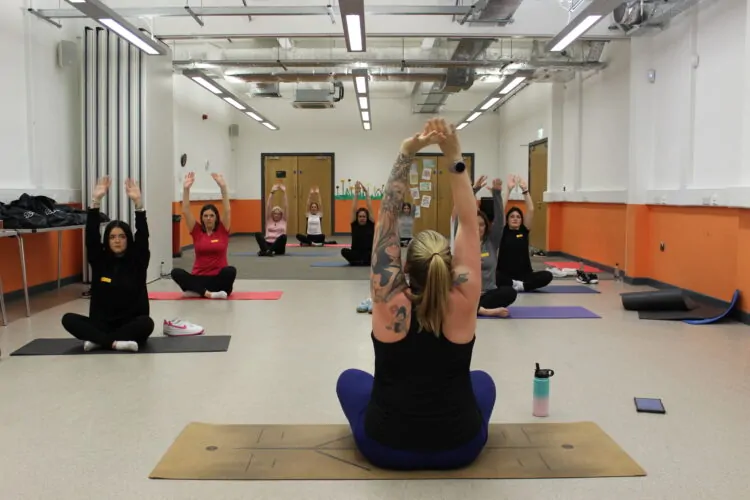
Strong Starts: Reflecting on Our Women’s Gym Introduction Event


EB Health & Leisure
As a health and leisure charity based in Cheshire East, we seek to make participation in any activity an enduring habit from the earliest years to later life. Our vision is to help people to live well and for longer by providing ‘Leisure for Life’.
Published: April 30th 2025
Category: Nutrition & Diet, Starting Out At The Gym
Whether you’re just starting your fitness journey or getting back into the swing of things, what you eat plays a big part in how you perform, whether it be on the gym, on the track or in the pool. Nutrition can feel overwhelming at first – macros, calories, supplements, timing – but it doesn’t have to be complicated.
We’re breaking down the basics of fitness nutrition in a way that’s simple and practical. Let’s cut through the confusion and start with the essentials: simple, sustainable nutrition strategies that help you to fuel your body and support your fitness goals.
What foods are best for pre-workout?
Let’s start with the basics and remind ourselves of the five main food groups: Carbohydrates, protein, dairy, fruit and vegetables, and fats. Before your workout, enjoy a snack or meal made up of carbs – which will provide the energy you need – and protein – which will support with muscle repair after a tough strength training session!
If you’re a seasoned gym user, you may have considered adding a pre-workout supplement liquid, gel or powered supplement to your daily menu. Products like Beta-alanine and Nitrates often stall fatigue during exercise, whilst Creatine gives your muscles a little extra fuel for fast, powerful movements. The effectiveness of sports supplements is down to the individual – always research and be sure to consult with a professional before adding supplements to your routine. Our Everybody PTs are here to support with nutrition, as well as helping you shape a programme that works for you
What foods are best for post-workout?
Post-workout, complex carbohydrates support recovery and energy replenishment, think starchy vegetables like potatoes, wholegrains and fruit. Don’t forget to re-hydrate too! It’s recommended that adults drink 6 to 8 glasses of water per day. Water-rich fruits and vegetables can also support with hydration, so be sure to add tomatoes, cucumber, melon and apples to your shopping list.
Collagen can also support with that post-workout soreness that we all feel the next day. Studies show that collagen is super important for helping your tendons and ligaments heal. These are the tissues that connect your muscles to your bones and keep your body steady when you move.
Should I be refuelling during exercise?
If you’re planning to exercise for over an hour, you’ll need to refuel during these periods of exercise too. There are all sorts of supplements and products that are convenient for when you’re on the move like energy gels – small sachets packed with caffeine or electrolytes to help keep you going. If gels aren’t your thing, be sure to reach for carb-packed produce like bananas.
Getting started with the basics is the first step to making better food choices for your fitness goals. You may find yourself adjusting what you eat as you figure out what best helps your performance. Remember, our team at Everybody are always here to support you and your goals.
References